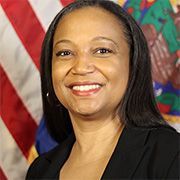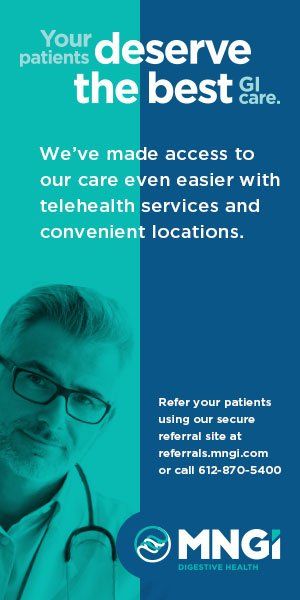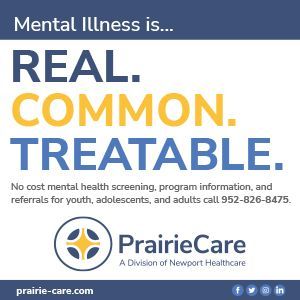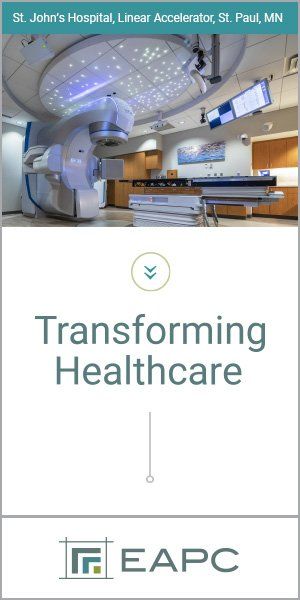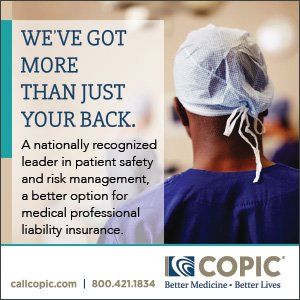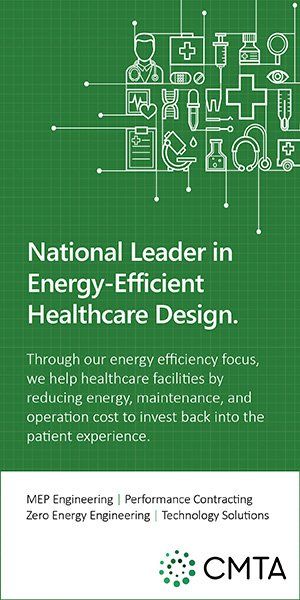Interview
Linking Public Health to Health Care
Brooke Cunningham, MD, PhD, Commissioner, Minnesota Department of Health
What were your first thoughts when Governor Walz asked you to become the new Commissioner of Health?
I was excited and a little scared. The excitement was around all of the potential for positive impact, with all of the support for health equity from the Governor’s Office, a budget surplus that could be used to improve the lives and thereby the health of Minnesotans, and increased public awareness of the value of public health. The fear was mostly around my transition into a political space and the daunting task of running a large, multifaceted agency that was still recovering from toll of the pandemic. I still took the job because of the opportunity of the current moment. As I’ve gotten older I have come to agree, if you aren’t scared, at least some of the time, you probably aren’t growing.
What have been some of the most surprising things you’ve encountered so far?
I have learned a lot about the political process. It’s not quite as described in 8th grade civics class. I joined MDH as an assistant commissioner in March 2022. My first surprise was the attention and time that agency staff must give to the legislative session, to obtain the support and funding to continue their important work. At MDH, we begin our planning in the summer and that’s late by some other agency’s standards. This means that good ideas need to be “game-ready” early fall. As a member of the general public, I did not know “the calendar.” I did not know that if you have an idea, start early. You certainly can’t wait for the legislative session (or even mid-fall) to start to connect to state agencies.
The Minnesota Department of Health (MDH) has over 1,800 employees and an organizational chart that looks like the Rosetta Stone. What are some of the challenges managing the scope of the organization?
It is big, and I continue to find every day that it is filled with engaged, smart and passionate people who help make managing such a large organization a bit easier. To be successful I have to trust and rely on others, especially for subject matter expertise. At the same time, in public health today, we talk a lot about system transformation, whether it’s talking about reducing health inequities or about the ways in which agencies (federal, state, local, and/or Tribal) work together. System transformation requires a willingness to ask questions, to listen to perspectives that have not been traditionally valued and to challenge traditional ways of working.
Physicians have great influence in society.
MDH has an annual budget of over $1.5 billion, which sounds like a lot, but translates into you needing to improve the health of all Minnesotans for about $25 per month apiece. How do you make that work?
Historically public health has not been well funded. After years of under-investment, a recent analysis of Minnesota’s governmental public health system suggested that further investments would be needed – to the tune of half a billion dollars annually – across both state and local public health to fully address our state’s foundational public health needs. That said, we are so thankful for the investments made in state, local, and Tribal public health during the recent legislative session. Those investments will to allow us to better address big issues like suicide, drug overdoses, health inequities and the needs of families and children. The funding will help us to eliminate lead lines, tackle workforce shortages especially in rural Minnesota and develop strategies to reduce health care costs. Our experience operating on a limited budget means staff in public health agencies often work in multiple roles. We also recognize both the value of and frankly the need to collaborate with external partners to be successful.
What have been some of the most unexpected things you have encountered in opening the clinic?
The number of women who share with our physicians and medical staff that they feel seen and heard for the first time in their health care journey is shocking but motivating. The Herself Health whole person approach—our focus on female care services designed to address health and wellness issues that impact women and understanding what matters to our patients via customized care plans, regular dialogue, and active listening—has already had a major impact on our patients. We’ve also been surprised at the number of patients who want to get involved with their community via our clinics. Women wanting to volunteer, participate in community events or simply use our community-building events for socializing and relationship building has really taken off.
And of course, the demand. We knew we had built a primary care service that was fundamentally different from anything ever available, but we didn’t know how long it would take us to attract patients. We’ve seen growing demand, so much so that we’ve opened three clinics in 2023, with more planned for 2024.
Addressing health care equity issues has been a major agenda item for MDH for decades and is an area of particular expertise for you. What are the biggest barriers to health care equity?
There are several barriers – which means there are so many ways to improve equity. Improving access to high quality early childhood education, meaningful employment and affordable housing is key. So as Commissioner of Health, I am as excited about the legislative wins for the Departments of Housing Education and Economic Development as I am about investments in the Department of Health and the Department of Human Services. Eliminating inequities, however, is ultimately about sharing power, redirecting resources according to need and dismantling social inequality. This work requires political will and commitment not just from policymakers but from all of us.
What are examples of how physicians can interact with MDH?
Physicians are a tremendous resource in our communities, and we encourage you to seek out opportunities to serve on MDH special advisory boards, committees, and task forces. We have groups that address many areas of health, including chronic disease, newborn screening, maternal health, cannabis, sickle cell disease and now health equity. Providers can find more information on some options at Advisory Committees at MDH www.health.state.mn.us/about/committees.html.
Also, physicians have great influence in society. As important as it is to interact with MDH, it is just as important to interact with colleagues, health system leaders and policymakers on behalf of public health. We need to do a better job of linking public health to health care, especially primary care. With health care costs increasing, we must develop new models of care and reimbursement that are simultaneously more inclusive (in all the ways, the “who” and the “how”) and more sustainable. Of course, there are health conditions that can be modified through individual behavior and clinical treatment, but improving population health requires more intentional action and creativity on the part of health care partners than we’ve seen to date.
What are some of your short- and long-term goals for your tenure as Commissioner?
There are many, but a few I’ll lift up here are:
Improving the data we collect and how we use it. We want data that all communities can see themselves in, that responds to communities’ priorities and answers their questions. We want to improve the ways in which we share data, so that they are more usable, understandable and actionable.
Engage community partners early and often. We know some of the best solutions come from the communities most impacted. We must create workflows that reflect this as a core belief and then hold ourselves accountable to community input.
Promoting intra-agency wellbeing. All communities have experienced tremendous stress and uncertainty over the last few years. As we work to improve protect, maintain, and improve the health of all Minnesotans, we must also improve our own organizational health, wellbeing and functioning.
Over the last several years, we’ve seen a decrease in the public’s trust in science, medicine, public health and government. How is MDH working to rebuild trust? How should physicians be involved?
This is something we dealt with before COVID-19, but it was certainly elevated and accelerated during this unprecedented time. For MDH, I think it starts with staying true to our values of integrity, collaboration, respect, science and accountability. We have to show up consistently and with humility, literally and figuratively meet people where they are, strengthen current relationships (for example, we can’t let the partnerships that we developed during the pandemic wither) and cultivate new ones. Physicians can help build trust in science, medicine and public health by serving on our advisory boards, committees and taskforces. Also by proactively affirming their support for public health decisions in their practice settings, both with patients and colleagues, and when asked for their perspectives in everyday conversations with friends, family and neighbors.
You led an effort to teach doctors, especially white doctors, how to talk to their black and brown patients and about racism in health care. What can you share about those teachings?
I believe, done well, talking about racism may benefit patients, and done poorly that such conversations can be harmful. For physicians (and public health professionals), it is critically important to understand the multiple ways in which exposure to racism, over the life course, contributes to adverse health outcomes (e.g., individual and/or caregiver exposure to racism as adverse childhood events; racism as a chronic toxic stressor and the pathophysiology of the stress response; and the interlocking systems that contribute to social marginalization and disadvantage). Although this knowledge is key, as with most things, successful doctor-patient communication is influenced by other factors, such as the duration and quality of the relationship, the degree of trust, attending to what is said and not said and to nonverbal cues, naming fear, using plain language and honoring patient preferences. When talking about racism, it is particularly important for physicians to reflect on their own race-related beliefs, reactions, anxieties and intentions, or else there is a real risk of harm.
Brooke Cunningham, MD, PhD, was appointed in January 2023 as commissioner for the Minnesota Department of Health. She is responsible for directing the work of the Minnesota Department of Health. MDH is the state’s lead public health agency, responsible for protecting, maintaining and improving the health of all Minnesotans.
MORE STORIES IN THIS ISSUE
cover story one
Shell Game Economics: Corporate medicine wins, you lose
By David Feinwachs, MA, MHA, JD, PhD
cover story two
The Mental Health Collaboration Hub: Getting to Yes!
By Todd Archbold, LSW, MBA





